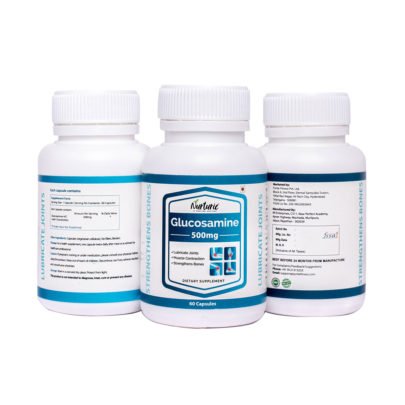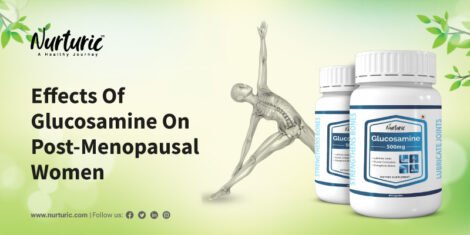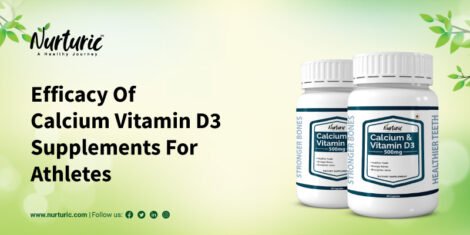- You have no items in your shopping cart
- Subtotal: ₹0.00
Making sure that we are receiving the right kind of nutrition is one of the most challenging things to do these days. It can be difficult to calculate the adequate nutritional requirements for your bones due to the fast-paced working environment and busy schedules. Calcium is essential for proper body function, including blood cell, muscle and nerve function. Over 98% of our body’s calcium is in bone tissues, where it provides strength. The body maintains blood calcium levels within a narrow range to ensure proper function. Bones are constantly remodelling, whether they are breaking down and resorbing with calcium deposits. Bone growth and density are highest during childhood and adolescence. The bones also serve as a calcium reservoir for the body.

Vitamin D3, also known as cholecalciferol, is a fat-soluble vitamin that aids the body’s calcium absorption and is required for bone mineralization. Though it can be found in fish, liver, eggs, milk and fortified products; sunlight is an excellent Vitamin D3. Vitamin D3 deficiency is prevalent among us, which can lead to weak bones and skeletal deformities. Together Vitamin D and calcium are nutrients that promote bone health. Read on to know more about calcium and vitamin D3 benefits.
Incredible Benefits Of Calcium and Vitamin D3 For Healthy Bones And Smile
Calcium is a vital mineral for human life that has numerous health benefits. It plays several critical roles in the human body, including bone health maintenance, blood clotting assistance, intracellular signalling, and hormonal secretion. Calcium also aids in the regulation of heart rate, as well as muscle contraction and relaxation. In terms of absorption, vitamin D3 and calcium are inter-connected. When our calcium level falls, our bodies convert more vitamin D3 to its activated form to absorb calcium.

Even if our calcium intake is adequate, if vitamin D3 is deficient in our diet, calcium will not be absorbed, leading to weak bones and osteoporosis. Similarly, if we do not consume calcium, as soon as our calcium level drops, calcium absorption from our bones occurs, depleting bone calcium stock to maintain blood levels. This slowly leads to weak bones that are more prone to fractures. To learn more, let’s delve into the benefits of calcium and vitamin D3 tablets.
Enhances Muscle Strength
Muscle weakness is a symptom of severe vitamin D deficiency in people with osteomalacia, though the effects are more substantial in severely deficient people. Calcium and vitamin D3 protects the heart muscles and aid in the proper contraction and relaxation of the cardiac muscles. It also aids the nervous system in maintaining good artery pressure. When calcium levels fall, a hormone called calcitriol is released, which contracts the smooth muscles of the arteries, raising blood pressure. Vitamin D3 does not appear to improve muscle strength on its own, but it may be beneficial when combined with calcium.
Supports Cardiovascular Health
Calcium relaxes veins and arteries while also lowering cholesterol levels. It also aids patients with high blood pressure. A calcium-rich diet lowers blood pressure and thus keeps the heart healthy. Salmons and sardines are good sources of omega-3 fatty acids and calcium that are beneficial to the heart. It aids in lowering blood pressure and the maintenance of healthy body weight. Vitamin D consumption reduces the risk of heart attacks and atherosclerosis. In the presence of specific receptors and 1-alpha-hydroxylase, vitamin D3 is converted into activated, including cardiomyocytes, producing 1-alpha-hydroxylase. As a result, vitamin D3 intake is also vital for maintaining a healthy heart.
Prevents Bone Demineralization
Calcium is essential for strong bones. It strengthens the backbone, aids in relieving back pain and keeps the bones in proper shape. It also prevents arthritis and osteoporosis, both of which can limit your mobility and be extremely painful. The well-known benefit of vitamin D3 is that it aids in forming healthy bones and the absorption of calcium. It aids in the proper production of phosphorus and calcium regulation in the body. It is necessary for many bodily functions, and if we don’t get enough of it from our diet, our bodies will take it from our bones to ensure normal cellular functioning, eventually leading to weakened bones.
Regulates Immune System
T-cells, also known as killer cells in the body, are particular types of cells in our immune system. These cells protect us from foreign bodies because they are beneficial to differentiate between outside invaders and self cells. Vitamin D3 boosts our immune system by regulating T-cells. Optimal vitamin D levels benefit adaptive immune systems in various ways, including supporting white blood cell function and assisting the immune system in adapting to and warding off threats.
Improves Tooth Retention
Calcium improves the health of your mouth by preventing the occurrence of gum diseases. It aids in the invasion of bacteria into the teeth, thereby protecting our teeth and gums. It also aids in the formation of enamel on our teeth and protects them by keeping the jaw bone strong and sturdy throughout our lives. In addition, it protects your teeth from bacterial attack and plaque formation. Incorporating vitamin D3 along with calcium helps in strengthening jawbones and teeth.
Maintains Body Weight
If you want to lose weight, calcium could be a helpful ally. Because calcium can bind fat in the digestive system, it aids in weight loss. It acts as a natural catalyst for the metabolism, speeding up the digestive process. It aids in the burning of fat cells in the body, which directly aids in weight loss. Calcitriol, a hormone involved in calcium metabolism, rises to help the body conserve calcium when its intake is low. The disadvantage of calcitriol is that it causes fat cells to expand and thus increases fat stores in the body. Calcium and vitamin D3 supplementation can help suppress appetite and aid in weight loss.
Relieves PMS Symptoms
Calcium and vitamin D3 aid in the restoration of normal menstruation. Calcium benefits women with polycystic ovarian syndrome by improving egg health. Adequate calcium intake alleviates premenstrual syndrome symptoms such as dizziness, mood swings, hypertension, and many others. Low mineral levels may cause the release of hormones that cause premenstrual mood swings such as irritability and depression. It effectively stabilizes hormone levels and regulates adrenal, thyroid, and other hormones. Vitamin D is essential for thyroid health because it regulates thyroid hormone production and reproductive health.
Now that you’ve seen the vitamin D3 and calcium benefits for the body, let’s talk about who needs them and what conditions they can help prevent.
Who Needs It – Which Conditions Can It Treat or Prevent
Calcium and vitamin D3 are the primary nutrient transporters between cells, which means, in addition to providing essential structural support for the skeletal structure, calcium ensures that each cell receives the nutrients it needs to replicate and grow. It is necessary for the body because it protects it from various diseases and weaknesses and promotes overall bone health. The benefits of taking calcium tablets aid in bone formation and the prevention of various bone-related disorders.
Vitamin D is classified into three different types of compounds: D1, D2 and D3. It is required to absorb calcium, magnesium and phosphate in the intestine and decrease its inflammatory response. It prevents toxic substances from attaching to cell walls and causing additional stress on the body. Getting enough calcium and vitamin D3 keeps you healthy by protecting you from and possibly treating the conditions listed below.
- Osteomalacia
- Autism
- Autoimmune disease
- Cancer
- Chronic pain
- Depression
- Heart disease
- Neuromuscular diseases
Supplement consumption has skyrocketed, with an increasing number of people turning to it for various health concerns. Some people use it to improve bone health and development, while others supplement a specific body area.

Now that you know what conditions Calcium and Vitamin D3 can treat or prevent, let’s talk about how to use them and what precautions you should take.
Possible Side Effects
Calcium and vitamin D3 supplements can help bridge the gap between what you get from food and what you need each day. When deciding on a dose, it is necessary to be cautious. Excessive consumption can not only impede your fitness progress but also cause complications in your body. Excess calcium and vitamin D are also dangerous for pregnant women because they can harm infants feeding on mother’s milk. Let’s look at the effects of calcium and vitamin D3.
- Kidney stones
- Heart disease
- Cancer
- Circulatory disorder
- Parathyroid gland disorder
- Lymphoma
- Tuberculosis
- Decreased brain function
- Confusion
- Ataxia
These are some of the mild common side effects caused by excessive consumption. If you observe any of these complications, talk to your certified nutritionist right away! It is recommended to limit the intake below 4000 units of calcium with vitamin D3 dosage for adults.

Now that we’ve discussed the potential side effects of calcium and vitamin D3; let’s look at some of the food sources that contain them.
Food Sources Of Calcium And Vitamin D3
A vast number of foods contain calcium and vitamin D3. It is commonly assumed that milk is the best source of calcium, but this is not true; broccoli is the quickest way to increase their levels in your diet. Aside from the general rule of getting more sun, there are a few other ways to get more vitamin D3 daily. Here are some common nutrient-rich foods that contain calcium and vitamin D3.
- Yoghurt, cheese, milk and other dairy products
- Sardines (bone-in)
- Salmon
- Turnip greens
- Kale
- Eggs, in particular, yolks
- Cheese, in particular, cheddar
- Yoghurt
It is better to get your calcium and vitamin D from natural sources rather than supplements, but you must take tablets if you are deficient in order to avoid further complications. Let us discuss how to select the best supplement.
How to Choose the Right Supplement. Where to Buy It From
The calcium and vitamin D supplements may be recommended based on various characteristics such as age, gender and individual risk factors. There are multiple brands available on the market, bearing their own set of advantages and disadvantages in terms of price. Check to see if the company or manufacturer is genuine and credible. Is their merchandise organic or safe?

Nurturic guarantees high quality and authentic products if you are looking for 100% organic calcium and vitamin D3 supplements.
Our Take
Calcium and vitamin D3 have been helpful to humankind throughout history, and the development of medical technology has made us realise how important this substance is. To protect your bones and your heart, you must combine the right dietary balance with physical activity.
Have you recently considered your daily calcium and vitamin D3 intake? If not, it’s a good idea to keep a food and supplement diary for a day to see what you’re averaging. It can be an excellent way to determine whether you require additional assistance.
FAQ’s
1. What should you avoid when taking calcium?
It is recommended to avoid caffeine, soda, and high-salt foods because they interfere with calcium absorption.
2. What is the best time to consume vitamin D3 and calcium?
It is recommended to consume two tablets twice a day along with meals.
3. Can calcium and vitamin D3 help you avoid osteoporosis?
Yes, calcium and vitamin D3 are commonly recommended for bone issues such as osteoporosis to form and maintain bone density.
4. Is vitamin D good for the skin?
Yes. Vitamin D is the sunshine vitamin because it is essential for skin protection and rejuvenation.
5. How do Calcium and vitamin D work together?
Calcium and vitamin D work together to keep your bones healthy. Calcium aids in the formation and maintenance of bones, whereas vitamin D aids in the absorption of calcium.
6. Do eggs block calcium absorption?
No. Eggs are a source of Vitamin D, which helps in increasing the absorption of calcium.
7. Is calcium good for teeth and gums?
Yes. Calcium strengthens your teeth and jawbone while also aiding in the prevention of gum disease.
8. Can vitamin D reverse cavities?
Yes. Vitamin D may assist in mineralizing teeth and strengthen enamel, making it a potential treatment for tooth decay.
9. How does low vitamin D make you feel?
Muscle weakness, pain, fatigue and depression are all symptoms of vitamin D deficiency.
10. Who should avoid calcium and vitamin D3 consumption?
Before incorporating calcium and vitamin D3 supplements, people with autoimmune disease, inflammatory bowel disease and obesity should consult a doctor.











